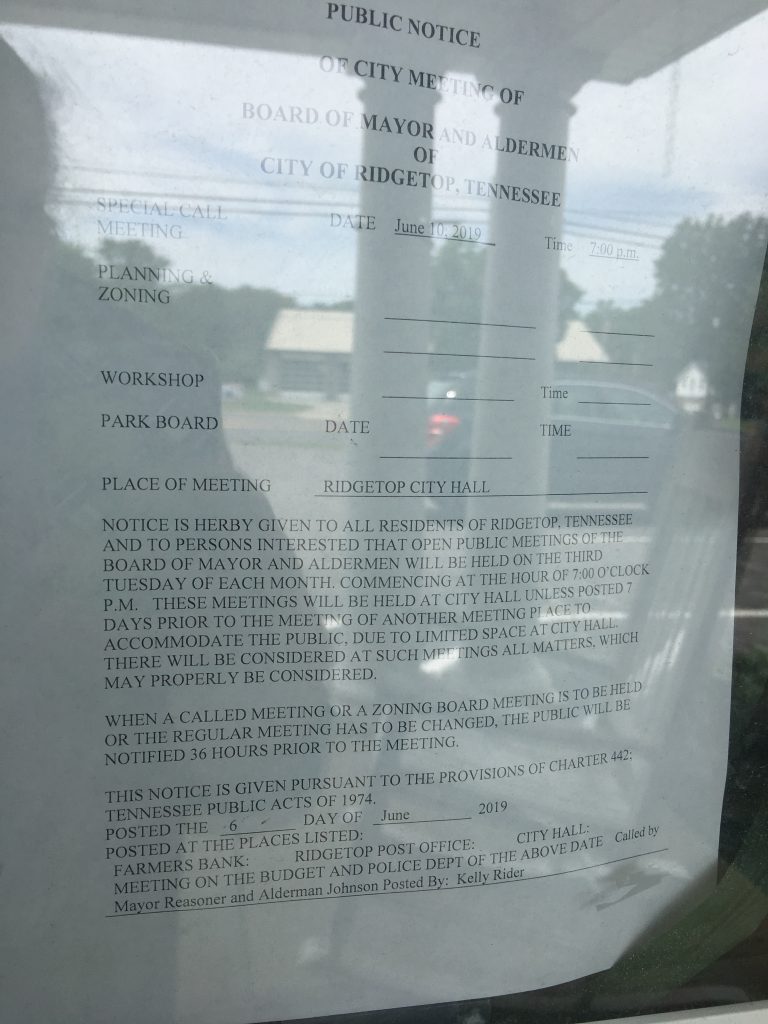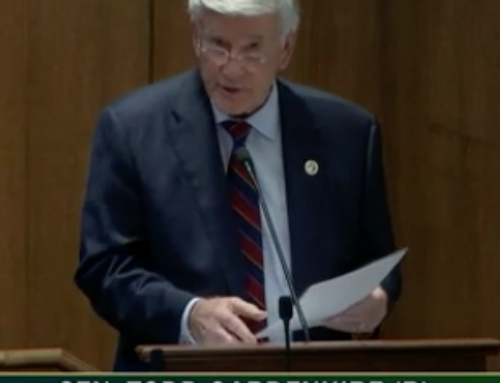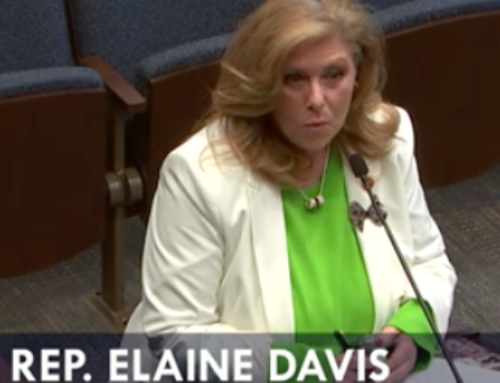Is it adequate notice if key details are omitted – like a vote on eliminating the police department?
More than 22 year ago, a group of citizens in Englewood filed a lawsuit against their city, alleging that their Board of Commissioners did not provide adequate notice of a meeting in which it selected a route for a highway expansion project.
The case reached the Court of Appeals, which established a three-pronged test still relied upon today when considering if a public notice of a special-called meeting is adequate under the requirements of the Tennessee Open Meetings Act.
It’s a test that came to mind recently when some citizens in Ridgetop in Robertson County complained that their board of mayor and aldermen did not give adequate notice of a special-called meeting in which they decided to dissolve the town’s police department.
Public notice describes ‘meeting on budget and police department’

The town of Ridgetop posted public notice of a Monday night meeting at city hall, the post office and a local bank. The notice specified at the bottom that it was a “meeting on the budget and police department.”
This notice was not posted on its website, where meeting notices of the board are usually placed.
The parallels with the Englewood case are noticeable.
In Englewood, the town commission had posted the special-meeting notice of a Dec. 12, 1996 meeting on the walls at city hall, the post office and a local bank two days before the meeting. Its notice read:
1. Letter to State concerning HWY 411.
2. Police Salary Supplement pay
3. City Recorder
The Court of Appeals in Englewood Citizens for Alternate B. v. The Town of Englewood (1999) ruled that was not enough.
What constitutes adequate public notice under Tennessee law?
The Tennessee Open Meetings law, passed by the General Assembly in 1974, states that a governing body must give “adequate public notice” of all of its regular and special meetings.
The statute doesn’t outline how many days or what type of specificity in the notice constitutes adequate notice. This caused the Open Meetings Act to be immediately challenged upon passage by the city of Memphis who said the act was so vague that officials would not know how to comply.
In a ruling that still smacks at the feigned perplexity so tiresome when encountered in government officials resistant to open government, the Tennessee Supreme Court rejected the “we-don’t-know-what-to-do” argument and upheld the law.
It explained in Memphis Publishing v. City of Memphis (1974) “…adequate public notice means adequate public notice under the circumstances, or such notice based on the totality of the circumstances as would fairly inform the public.”
The Supreme Court’s decision, in many ways, gave flexibility for the variety of circumstances and types of governing bodies under the law, while essentially requiring government officials to be grownups and do what they must know is the right thing in notifying the public about their meeting agenda.
Court of Appeals offers 3-prong test for adequate notice
In Englewood, the Court of Appeals offered further, if somewhat obvious, guidance in its three-prong test:
- The notice must be posted in a location where a member of the community could become aware of such notice.
- The contents of the notice must reasonably describe the purpose of the meeting or the action proposed to be taken.
- The notice must be posted in enough time to give citizens the opportunity to become aware of the meeting and to attend.
Court says ‘cryptic’ meeting agenda not adequate
So did Englewood pass the test? The court said no. While it posted the notice where people could see it and in enough time for people to see it, the contents of the notice were too vague.
To qualify as adequate notice, the court said “the general public must be made aware of the issues to be deliberated … through a notice designed to inform the public about those issues.
“We find that under the circumstances presented, the content of this notice was so lacking that a person of reasonable intelligence would not adequately be informed by the cryptic statement ‘Letter to State concerning HWY 411.’ Instead, a more substantive pronouncement stating that the commission would reconsider which alternative to endorse for Highway 411 should have been given.”
Did Ridgetop give adequate notice?
Did the Ridgetop board pass the three-pronged test in their notice of the meeting in which they dissolved the police department?
That would be up to a judge to decide, based on the “totality of the circumstances as would fairly inform the public.”

Rumors had been circulating about a police department shutdown for weeks, according to a report in The Tennessean, and the city had talked with the county sheriff about making up for any potential lost law enforcement coverage. Citizens had come to previous board meetings and urged the city not to reduce or eliminate the department.
But saying only in the public notice for the June 10 meeting that the meeting was “on the budget and police department” seems to leave out the fairly significant nugget that the board would be voting that night on dissolving it.
And there is some question why the notice was not on the website.
Put yourself in the seat of the Ridgetop mayor and aldermen. If you were having a meeting in which you might vote on eliminating the police department, how would you flag citizens that such an important vote was upcoming?
In this simple question, I hope Tennesseans can begin to find some answers about adequate notice.




